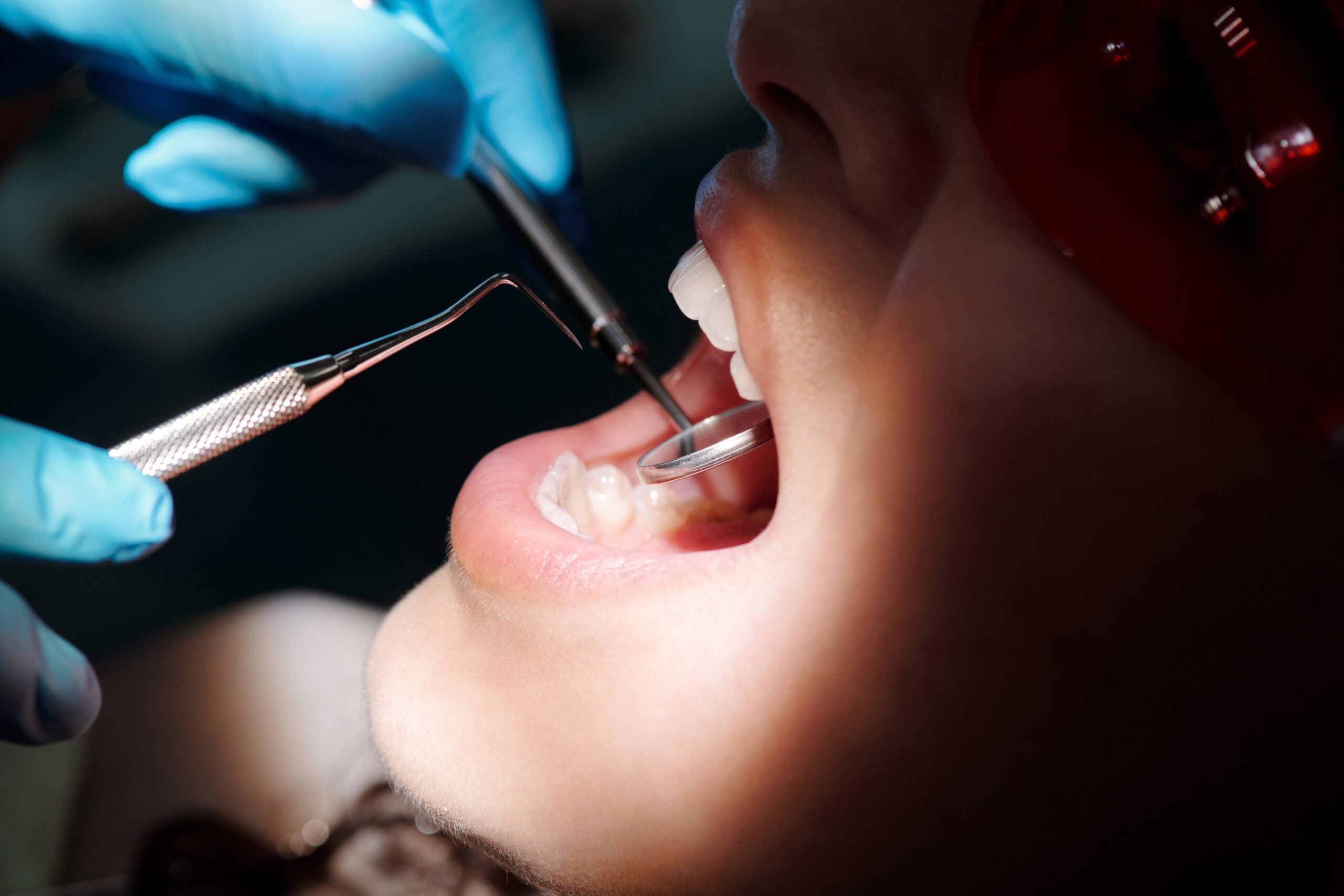Researchers in China have created a new treatment using a combination of agents and nanoparticles which is aimed at preventing tooth decay. Tooth decay continues to affect billions of people, so a treatment that claims to prevent it is promising. The treatment aims to stop the production of acidic substances and bacteria in the mouth. Therefore, this helps improve oral health.
New research has led to the creation of a treatment which aims to help prevent tooth decay. The research has the potential to have an excellent impact on the oral health of billions of people.
The treatment, which is the result of a mix of agents and nanoparticles, aims to stop the production of acidic substances and bacteria in the mouth.
By stopping the production of these harmful substances, the mouth will be less vulnerable to tooth decay. Therefore, this would hopefully lessen the number of cavity fillings that people require.
Tooth decay
This research is aimed at preventing tooth decay. Tooth decay results in the development of cavities in teeth, which require a filling to prevent further damage.
Tooth decay affects so many people around the world – from children to older adults. It is often caused by having too much sugary food and drink [1]. Moreover, poor oral hygiene will also often result in the development of cavities [1].
Bacteria and acid in the mouth – caused by food, drink, and other items placed in the mouth, also contribute to cavities. Therefore, dentists always preach the importance of eating healthily.
The Research
The researchers sought to find out if their treatment could help to prevent tooth decay. The researchers came from the Fujian Institute of Research. Their findings were published in the Chemical Engineering journal [2].
There was a special focus on preventing a specific type of bacteria caused Streptococcus mutans – which is known for its ability to survive in acidic environments, causing damage to the teeth and gums [2].
When there is too much bacteria, a “biofilm” is created, where teeth and gums become covered in bacteria and other microorganisms [2]. Therefore, bacteria can be very problematic.
The researchers developed their treatment using a few different substances. They loaded Rose Bengal – an antibacterial agent – onto Copper-doped Zinc Peroxide nanoparticles [2].
The researchers then sampled the use of their treatment on rodents [2]. Their combination was shown to be very effective. They found the nanoparticles were able to quickly produce hydrogen peroxide when exposed to the mouth. This helped to neutralise the acidic biofilm [2].
The treatment was able to kill large numbers of Streptococcus mutans in the mouth too [2]. Therefore, this had the effect where it became difficult for bacteria to build up – preventing tooth decay.
The combination of substances was effective at stopping the production of acidic substances and the formation of biofilm [2]. Overall, the findings suggested the treatment was highly effective.
Implications
The study produced very positive results. The results showed that a treatment of copper-doped Zinc Peroxide and Rose Bengal can be very effective for bacteria-based conditions [2].
Professor Chen Zhuo of the Fujian Institute, commented on the findings [3]. He said that an application of their treatment “effectively inhibited the occurrence and severity of dental caries without harmful effects on the body” [3].
For oral health, the findings are very positive. This treatment – which could potentially be used in the form of a toothpaste – could aid the prevention of bacteria building up. Therefore, tooth decay should lessen, causing fewer dental problems.
Thinking points…
1) Tooth decay is clearly a big problem, and many people are actually unaware that they have decaying teeth. Therefore, it is crucial to see a dentist for a check-up on a regular basis. By seeing your dentist, they can check for any problems or signs of decay, and offer advice where necessary. We recommend booking an appointment soon!
2) This article talks about bacteria in the mouth. It is important to remember that anything we put in our mouth – from food to drink to even our nails, results in bacteria entering the mouth. Think about your habits, is there anything you can do to lessen the level of bacteria entering your mouth? If you’re worried about this, we recommend talking to your dentist, who can offer practical advice. Why not make contact right away?
What we offer at Savanna Dental
Savanna Dental is a Calgary Dental Clinic that provide its patients with a range of treatment options and advice aimed at improving oral health.
It is crucial to brush your teeth at least twice a day and to floss regularly. Moreover, eating healthily and trying to avoid sugary foods and drink is important.
We advise our patients to attend our Calgary-based dental clinic twice a year for a regular dental check-up. When problems are detected, we have many treatments available. For instance, these include cavity fillings and root canals.
Here at Savanna Dental, we also have some cosmetic treatments available! These include dental implants, tooth whitening and Invisalign™! Many people find that these treatments have a positive impact on their appearance, confidence and self-esteem.
In addition, all of our services at our Calgary dental clinic Savanna Dental are in line with the Alberta Dental Fee Guide.
We would love you to visit our Savanna Dental clinic in Calgary! You can find out more about us by visiting our website https://savannadentalclinic.ca.
References
[1] NHS. (2022). Tooth Decay. Available: https://www.nhs.uk/conditions/tooth-decay/. Last accessed: 24th June 2022.
[2] Zhang, Y., Liu, W., Huang, Y., Wang, Y., Chen, X., & Chen, Z. (2022). Bacterial biofilm microenvironment responsive copper-doped zinc peroxide nanocomposites for enhancing chemodynamic therapy. Chemical Engineering Journal. 446 (3):137214. DOI: https://doi.org/10.1016/j.cej.2022.137214.
[3] Chinese Academy of Sciences. (2022). Researchers propose new strategy for prevention and treatment of dental caries. Available: https://medicalxpress.com/news/2022-06-strategy-treatment-dental-caries.html. Last accessed: 24th June 2022.

